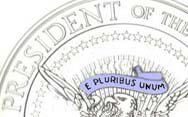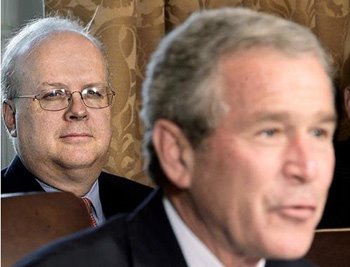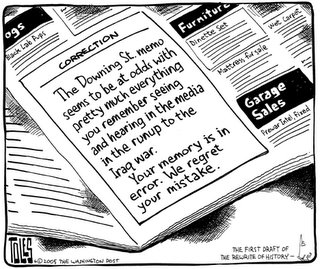 Indictment doesn't clear up mystery at heart of CIA leak probe
Indictment doesn't clear up mystery at heart of CIA leak probeBy Jonathan S. Landay and Warren P. Strobel
Knight Ridder Newspapers
WASHINGTON - At the heart of Friday's indictment of a top White House aide remain two unsolved mysteries.
Who forged the documents that claimed Saddam Hussein was seeking uranium for nuclear weapons in the African country of Niger?
How did a version of the tale get into President Bush's 2003 State of the Union address, even though U.S. intelligence agencies never confirmed it and some intelligence analysts doubted it?
Former Ambassador Joseph Wilson, who found no substance to the alleged deal during a CIA-sponsored trip to Niger, accused Bush in July 2003 of twisting the intelligence.
Shortly thereafter, the identity of Wilson's wife, Valerie Plame, a covert CIA officer, was leaked to journalists, igniting special counsel Patrick J. Fitzgerald's probe.
The FBI has been investigating the clumsy forgeries, which first surfaced in Rome in October 2002, for two years, but has made little progress, four U.S. government officials said, speaking on condition of anonymity because the investigation continues. Those officials blame a lack of cooperation from Italy. A spokesman for the Italian Embassy in Washington denied that.
But a weeks-long review by Knight Ridder has established that:
-Italy's military intelligence agency, SISMI, and people close to it, repeatedly tried to shop the bogus Niger uranium story to governments in France, Britain and the United States. That created the illusion that multiple sources were confirming the story.
The CIA had begun receiving intelligence reports based on the same forgeries in October 2001, but they could not be confirmed. Copies of the fake documents suddenly surfaced at a critical point in the White House's fall 2002 campaign to take the country to war in Iraq.
The CIA eventually determined that the earlier reports were "based on the forged documents" and were "thus ... unreliable," a presidential commission on unconventional weapons proliferation said in March.
-State Department intelligence analysts and some in the CIA discounted the uranium story. But White House officials, working through a back channel to one CIA unit, seized on the tale, and it was included in Bush's case for war.
The following is a chronology of events that led up to the indictment of I. Lewis "Scooter" Libby, Vice President Dick Cheney's chief of staff. It's based on interviews and on reports by the Senate Intelligence Committee and the presidentially appointed panel on weapons intelligence.
Oct. 15, 2001 - The CIA received the first of three top-secret reports from a foreign intelligence service - which intelligence officials said was Italy's SISMI - that Niger planned to ship tons of uranium ore, or yellowcake, to Iraq.
SISMI was behind similar reports in Britain and France. Paris never put any stock in the reports, according to two European officials. London has stood behind its statement that Iraq was seeking uranium in Africa.
February 2002 - Cheney and other officials asked the CIA to find out more.
Some CIA and Pentagon analysts were impressed with the reporting. But the State Department's Bureau of Intelligence and Research (INR) was skeptical. Its analysts noted that France controls Niger's uranium mines and argued that Iraq wouldn't risk being caught breaking U.N. sanctions.
The CIA station in Rome was skeptical of the reports from the start.
Feb. 21 - Wilson traveled to Niger at the CIA's request to investigate the purported uranium deal. He said he found nothing to substantiate the allegation. Neither did two other U.S. officials who investigated.
March 8 - The CIA circulated a report on Wilson's trip - without identifying him - to the White House and other agencies.
Sept. 9 - With the White House's public campaign against Iraq in full swing, Nicolo Pollari, head of SISMI, met with then-Deputy National Security Adviser Stephen J. Hadley at the White House. Hadley later took the blame for including the false Niger allegation in Bush's 2003 State of the Union speech.
National Security Council spokesman Frederick Jones said Thursday that the meeting was a 15-minute courtesy call and that no one could recollect talk about yellowcake.
Oct. 1 - U.S. intelligence agencies sent the White House and Congress their key prewar assessment of Iraq's illicit weapon programs, which said Iraq was "vigorously" trying to buy uranium ore and had sought deals with Niger, Somalia and possibly the Democratic Republic of the Congo. The State Department's INR dissented in the report.
Oct. 5 - Then-CIA Director George Tenet advised Hadley to drop a reference to Niger from the draft of a nationally televised speech that Bush was to give on Oct. 7 because the "president should not be a fact witness on this issue" as "the reporting was weak." The sentence was removed.
The CIA then wrote the White House that "the evidence (of a uranium ore deal) is weak. One of the two mines cited by the source of the uranium oxide is flooded. The other mine cited by the source is under the control of the French."
Oct. 9 - An Italian journalist for the Rome magazine Panorama, owned by Italian Prime Minister Silvio Berlusconi, a supporter of the Iraq war, gave the U.S. Embassy a copy of the purported agreement by Niger to sell yellowcake to Iraq.
The journalist, Elisabetta Burba, reportedly received the documents from Italian businessman Rocco Martino, who has connections to SISMI.
The Italian government has denied any connection to the forged documents.
The embassy forwarded a copy to the State Department. It raised the suspicion of an INR nuclear analyst, who noted in an e-mail that the documents bear a "funky Emb. Of Niger stamp (to make it look official, I guess.)"
Jan. 13, 2003 - The INR nuclear analyst told other analysts that he believed the Niger documents were forgeries.
Jan. 16 - The CIA finally received copies of the forged French-language documents. It sent them back to the State Department to be translated.
Jan. 17 - A CIA analytical unit known as WINPAC (Weapons Intelligence, Nonproliferation, and Arms Control) said in a secret assessment that there was "fragmentary reporting" on Iraqi attempts to purchase uranium from "various countries in Africa."
Sometime in late January, Robert Joseph, a senior White House staffer, and Alan Foley, the head of WINPAC, agreed that Bush could refer to the uranium claim in his State of the Union speech, but he should cite a public British report.
Jan. 28 - Bush delivered the State of the Union.
Feb. 5 - Secretary of State Colin Powell addressed the U.N. Security Council on the threat from Iraq but didn't repeat the yellowcake allegation.
March 3 - The International Atomic Energy Agency told the United States that the documents were forgeries after an expert used the Google search engine to identify false information.
July 6 - In an op-ed piece in the New York Times, Wilson wrote that his failure to confirm the alleged uranium deal led him to conclude that the Bush administration "twisted" some of the intelligence it used to justify the war.
July 14 - Syndicated columnist Robert Novak identified Plame in a column.
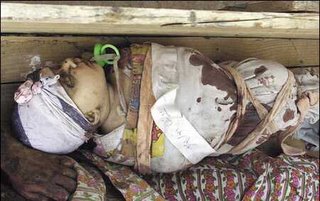











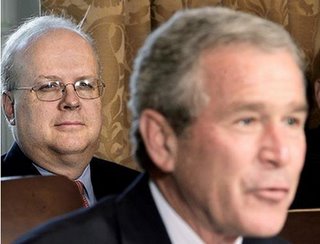



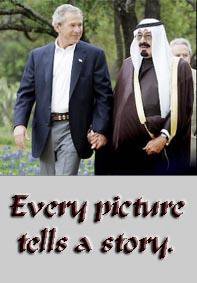




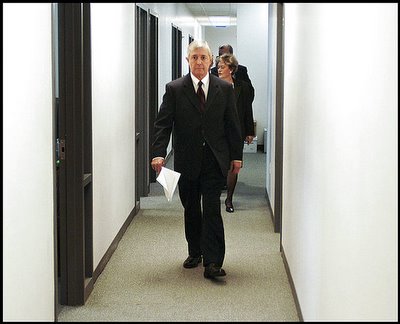

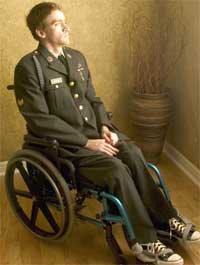 Now his anguish at never being able to walk again has turned to anger that he and thousands of others are being sent to fight an immoral war for George Bush.
Now his anguish at never being able to walk again has turned to anger that he and thousands of others are being sent to fight an immoral war for George Bush. PROUD: With mum before war
PROUD: With mum before war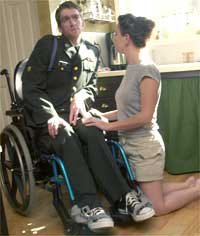 LOVING: Tomas and wife Brie
LOVING: Tomas and wife Brie GRIM TOLL: George Alexander
GRIM TOLL: George Alexander
